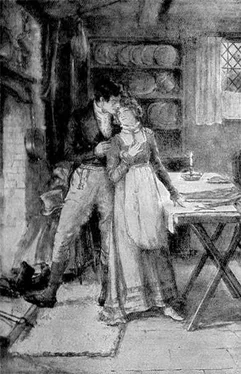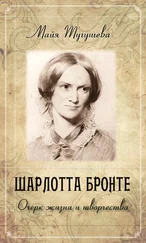Шарлотта Бронте - Shirley
Здесь есть возможность читать онлайн «Шарлотта Бронте - Shirley» весь текст электронной книги совершенно бесплатно (целиком полную версию без сокращений). В некоторых случаях можно слушать аудио, скачать через торрент в формате fb2 и присутствует краткое содержание. Год выпуска: 2014, Издательство: epubBooks Classics, Жанр: Классическая проза, на английском языке. Описание произведения, (предисловие) а так же отзывы посетителей доступны на портале библиотеки ЛибКат.
- Название:Shirley
- Автор:
- Издательство:epubBooks Classics
- Жанр:
- Год:2014
- ISBN:нет данных
- Рейтинг книги:3 / 5. Голосов: 1
-
Избранное:Добавить в избранное
- Отзывы:
-
Ваша оценка:
- 60
- 1
- 2
- 3
- 4
- 5
Shirley: краткое содержание, описание и аннотация
Предлагаем к чтению аннотацию, описание, краткое содержание или предисловие (зависит от того, что написал сам автор книги «Shirley»). Если вы не нашли необходимую информацию о книге — напишите в комментариях, мы постараемся отыскать её.
Shirley — читать онлайн бесплатно полную книгу (весь текст) целиком
Ниже представлен текст книги, разбитый по страницам. Система сохранения места последней прочитанной страницы, позволяет с удобством читать онлайн бесплатно книгу «Shirley», без необходимости каждый раз заново искать на чём Вы остановились. Поставьте закладку, и сможете в любой момент перейти на страницу, на которой закончили чтение.
Интервал:
Закладка:
"The man is a respectable, wealthy man! To refuse him is presumption on your part."
"I refuse point–blank! Cease to annoy me with the subject; I forbid it!"
"Is it your intention ever to marry; or do you prefer celibacy?"
"I deny your right to claim an answer to that question."
"May I ask if you expect some man of title—some peer of the realm—to demand your hand?"
"I doubt if the peer breathes on whom I would confer it."
"Were there insanity in the family, I should believe you mad. Your eccentricity and conceit touch the verge of frenzy."
"Perhaps, ere I have finished, you will see me over–leap it."
"I anticipate no less. Frantic and impracticable girl! Take warning! I dare you to sully our name by a mésalliance !"
" Our name! Am I called Sympson?"
"God be thanked that you are not! But be on your guard; I will not be trifled with!"
"What, in the name of common law and common sense, would you or could you do if my pleasure led me to a choice you disapproved?"
"Take care! take care!" warning her with voice and hand that trembled alike.
"Why? What shadow of power have you over me? Why should I fear you?"
"Take care, madam!"
"Scrupulous care I will take, Mr. Sympson. Before I marry I am resolved to esteem—to admire—to love ."
"Preposterous stuff! indecorous, unwomanly!"
"To love with my whole heart. I know I speak in an unknown tongue; but I feel indifferent whether I am comprehended or not."
"And if this love of yours should fall on a beggar?"
"On a beggar it will never fall. Mendicancy is not estimable."
"On a low clerk, a play–actor, a play–writer, or—or―"
"Take courage, Mr. Sympson! Or what?"
"Any literary scrub, or shabby, whining artist."
"For the scrubby, shabby, whining I have no taste; for literature and the arts I have. And there I wonder how your Fawthrop Wynne would suit me. He cannot write a note without orthographical errors; he reads only a sporting paper; he was the booby of Stilbro' grammar school!"
"Unladylike language! Great God! to what will she come?" He lifted hands and eyes.
"Never to the altar of Hymen with Sam Wynne."
"To what will she come? Why are not the laws more stringent, that I might compel her to hear reason?"
"Console yourself, uncle. Were Britain a serfdom and you the Czar, you could not compel me to this step. I will write to Mr. Wynne. Give yourself no further trouble on the subject."
Fortune is proverbially called changeful, yet her caprice often takes the form of repeating again and again a similar stroke of luck in the same quarter. It appeared that Miss Keeldar—or her fortune—had by this time made a sensation in the district, and produced an impression in quarters by her unthought of. No less than three offers followed Mr. Wynne's, all more or less eligible. All were in succession pressed on her by her uncle, and all in succession she refused. Yet amongst them was more than one gentleman of unexceptionable character as well as ample wealth. Many besides her uncle asked what she meant, and whom she expected to entrap, that she was so insolently fastidious.
At last the gossips thought they had found the key to her conduct, and her uncle was sure of it; and what is more, the discovery showed his niece to him in quite a new light, and he changed his whole deportment to her accordingly.
Fieldhead had of late been fast growing too hot to hold them both. The suave aunt could not reconcile them; the daughters froze at the view of their quarrels. Gertrude and Isabella whispered by the hour together in their dressing–room, and became chilled with decorous dread if they chanced to be left alone with their audacious cousin. But, as I have said, a change supervened. Mr. Sympson was appeased and his family tranquillized.
The village of Nunnely has been alluded to—its old church, its forest, its monastic ruins. It had also its hall, called the priory—an older, a larger, a more lordly abode than any Briarfield or Whinbury owned; and what is more, it had its man of title—its baronet, which neither Briarfield nor Whinbury could boast. This possession—its proudest and most prized—had for years been nominal only. The present baronet, a young man hitherto resident in a distant province, was unknown on his Yorkshire estate.
During Miss Keeldar's stay at the fashionable watering–place of Cliffbridge, she and her friends had met with and been introduced to Sir Philip Nunnely. They encountered him again and again on the sands, the cliffs, in the various walks, sometimes at the public balls of the place. He seemed solitary. His manner was very unpretending—too simple to be termed affable; rather timid than proud. He did not condescend to their society; he seemed glad of it.
With any unaffected individual Shirley could easily and quickly cement an acquaintance. She walked and talked with Sir Philip; she, her aunt, and cousins sometimes took a sail in his yacht. She liked him because she found him kind and modest, and was charmed to feel she had the power to amuse him.
One slight drawback there was—where is the friendship without it?—Sir Philip had a literary turn. He wrote poetry—sonnets, stanzas, ballads. Perhaps Miss Keeldar thought him a little too fond of reading and reciting these compositions; perhaps she wished the rhyme had possessed more accuracy, the measure more music, the tropes more freshness, the inspiration more fire. At any rate, she always winced when he recurred to the subject of his poems, and usually did her best to divert the conversation into another channel.
He would beguile her to take moonlight walks with him on the bridge, for the sole purpose, as it seemed, of pouring into her ear the longest of his ballads. He would lead her away to sequestered rustic seats, whence the rush of the surf to the sands was heard soft and soothing; and when he had her all to himself, and the sea lay before them, and the scented shade of gardens spread round, and the tall shelter of cliffs rose behind them, he would pull out his last batch of sonnets, and read them in a voice tremulous with emotion. He did not seem to know that though they might be rhyme they were not poetry. It appeared, by Shirley's downcast eye and disturbed face, that she knew it, and felt heartily mortified by the single foible of this good and amiable gentleman.
Often she tried, as gently as might be, to wean him from this fanatic worship of the Muses. It was his monomania; on all ordinary subjects he was sensible enough, and fain was she to engage him in ordinary topics. He questioned her sometimes about his place at Nunnely; she was but too happy to answer his interrogatories at length. She never wearied of describing the antique priory, the wild silvan park, the hoary church and hamlet; nor did she fail to counsel him to come down and gather his tenantry about him in his ancestral halls.
Somewhat to her surprise, Sir Philip followed her advice to the letter, and actually, towards the close of September, arrived at the priory.
He soon made a call at Fieldhead, and his first visit was not his last. He said—when he had achieved the round of the neighbourhood—that under no roof had he found such pleasant shelter as beneath the massive oak beams of the gray manor–house of Briarfield; a cramped, modest dwelling enough compared with his own, but he liked it.
Presently it did not suffice to sit with Shirley in her panelled parlour, where others came and went, and where he could rarely find a quiet moment to show her the latest production of his fertile muse; he must have her out amongst the pleasant pastures, and lead her by the still waters. Tête–à–tête ramblings she shunned, so he made parties for her to his own grounds, his glorious forest; to remoter scenes—woods severed by the Wharfe, vales watered by the Aire.
Читать дальшеИнтервал:
Закладка:
Похожие книги на «Shirley»
Представляем Вашему вниманию похожие книги на «Shirley» списком для выбора. Мы отобрали схожую по названию и смыслу литературу в надежде предоставить читателям больше вариантов отыскать новые, интересные, ещё непрочитанные произведения.
Обсуждение, отзывы о книге «Shirley» и просто собственные мнения читателей. Оставьте ваши комментарии, напишите, что Вы думаете о произведении, его смысле или главных героях. Укажите что конкретно понравилось, а что нет, и почему Вы так считаете.











